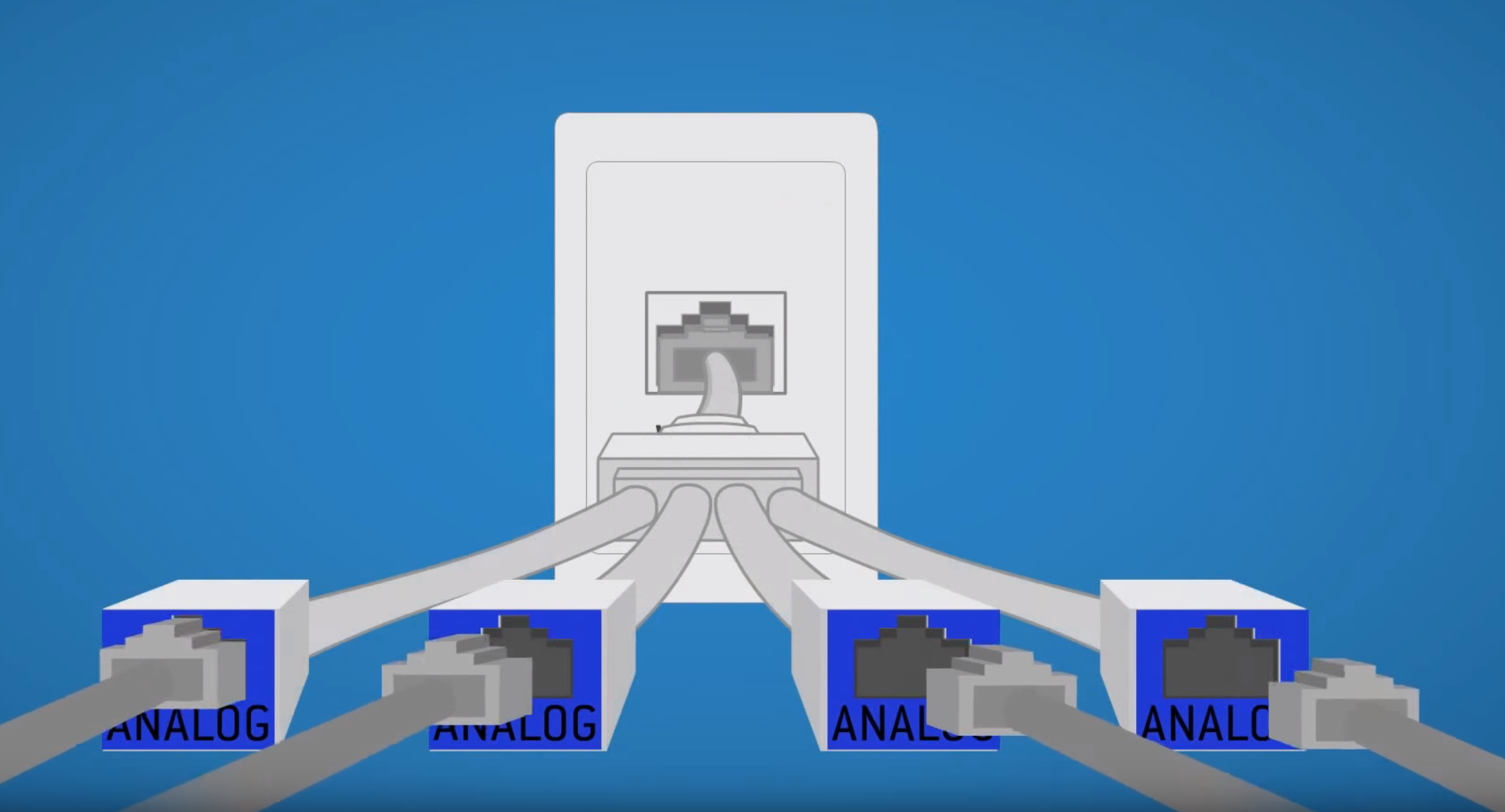By Nathan Miloszewski, on behalf of Yeastar
When it comes to VoIP PBX systems, channel partners need to determine whether an on-premise solution or a cloud-based service is best suited for their customer.
Each solution has its strengths. For the instances in which you determine that an onsite IP PBX is the best option for your customer, we’ve put together these guidelines to help you sell against the hosted solutions offered by your competitors. Here at Yeastar, we work with thousands of channel partners who find themselves in competition with cloud-based VoIP service providers and have identified the most compelling arguments for an on-premise solution. Think of each one as an additional arrow in your sales quiver.
Read More
Topics:
Customer Service,
IP PBX,
Business Telephone System,
VoIP,
Total Voice Solution
About 90% of businesses in the United States have fewer than 20 employees, according to the Small Business & Entrepreneurship Council. In the past, companies of this size often couldn’t benefit from PBX functionality like IVR (interactive voice response), hunt groups, hold music, and so forth, because of the high cost of installing and maintaining a PBX.
But today, things are different. Thanks to hosted VoIP service, micro-enterprises can have a phone system with even more functionality than a legacy PBX, even if they only have one user! All they need is a broadband Internet connection. With VoIP, micro-businesses can be more efficient and enjoy the same functionality that big corporations have relied on for decades.
Here we look at how a micro-enterprise can get started with VoIP and some of the benefits it can reap as a result.
Read More
Topics:
SIP Phones,
IP PBX,
QoS,
Business Telephone System,
VoIP,
SIP,
Trends,
Mobility (including remote work)
Replacing a legacy PBX that a company has used for years with an IP PBX can be intimidating, and understandably so. That’s why we recommend a transition method that allows the new technology to be gradually introduced over time. This not only ensures business continuity but also gives the associates plenty of time to adjust to the new equipment.
Read More
Topics:
Customer Service,
SIP Phones,
IP PBX,
Business Telephone System,
VoIP,
SIP,
Total Voice Solution,
Business Continuity
Businesses are constantly trying to boost productivity so they can do more – and grow more – with less. SIP telephony is a great example of this. Compared with legacy PBX-based phone systems, IP phone systems allow companies to do much more, with less hardware and fewer resources.
Read More
Topics:
IP PBX,
Business Telephone System,
SIP,
Total Voice Solution,
Trends,
Mobility (including remote work)
Ensuring business continuity in case of unexpected service loss is an essential component of any IP telephone system. In a previous blog post we mentioned various failover mechanisms that can be deployed to address different scenarios. Here, we’ll take a closer look at two in particular: backup SIP trunk or ITSP, and failover servers. You may be surprised to discover how easy and affordable they are to set up – especially when compared with the costly alternative of service interruption.
Read More
Topics:
IP PBX,
QoS,
Business Telephone System,
VoIP,
Total Voice Solution,
Business Continuity
|
| Image designed by Alvaro_Cabrera - Freepik.com |
Open source with open access vs. open source:
Make sure you know which one suits you and your customer.
Open source telecommunications systems are not all created equal. All are open source in the sense that they are built using publicly and freely available code like Asterisk. However, not all of them allow access to the root programming level, which allows you to modify or customize aspects of the code to suit specific requirements or preferences. If a system restricts root-level access, certain features may be customizable, but don’t count on having much leeway. Be sure you know which one best suits your customer.
Read More
Topics:
Customer Service,
IP PBX,
Business Telephone System,
VoIP,
SIP,
Total Voice Solution
These features absolutely must be in your IP PBX suite offering
When proposing IP voice solutions to small businesses, certain applications and features are so essential that the customer won’t even consider purchasing a system without them. According to a study of more than 200 small businesses conducted by SoftwareAdvice, the phone system applications most often cited as “required” are:
Read More
Topics:
Customer Service,
IP PBX,
Business Telephone System,
VoIP,
SIP,
Total Voice Solution,
Software Integration,
Trends,
Mobility (including remote work)
Get even more bang for your buck by adding these five bells and whistles to your VoIP server.
As long as you have one, you may as well get the most out of your IP PBX by taking advantage of the plethora of applications and systems designed to work on it. IP PBXs of course coordinate your VoIP communications, but they can also do a host of other things. Here we list five non-voice services your IP PBX can perform for your business.
Read More
Topics:
IP PBX,
VoIP,
SIP,
Peripherals
National telephone operators have been investing less in maintaining traditional PSTN networks and paying more attention – and money – to building out their mobile and Internet protocol (IP) networks. AT&T launched its Project Velocity IP in 2012 with the intention of expanding its wired broadband IP network to reach 75% of its customer locations in three years. In Europe, British Telecom and Deutsche Telekom both have their sights set on all-IP. DT’s website says, “The network of the future is an integrated, all-IP network.”
A common reason some businesses still cling to their PSTN lines even when they’ve switched to a VoIP (voice over IP) phone system is to have a failover option. Here we look at some other failover mechanisms that don’t require a PSTN line, as well as the key benefits to switching to all-IP.
Read More
Topics:
IP PBX,
Business Telephone System,
VoIP,
SIP,
Total Voice Solution,
Software Integration,
Trends
6 techniques for making your network installations quicker and easier
Read More
Topics:
IP PBX,
Business Telephone System,
VoIP,
SIP,
Total Voice Solution

















